Experts Dissect Major Supreme Court Cases in Annual UC Law Panel Talk
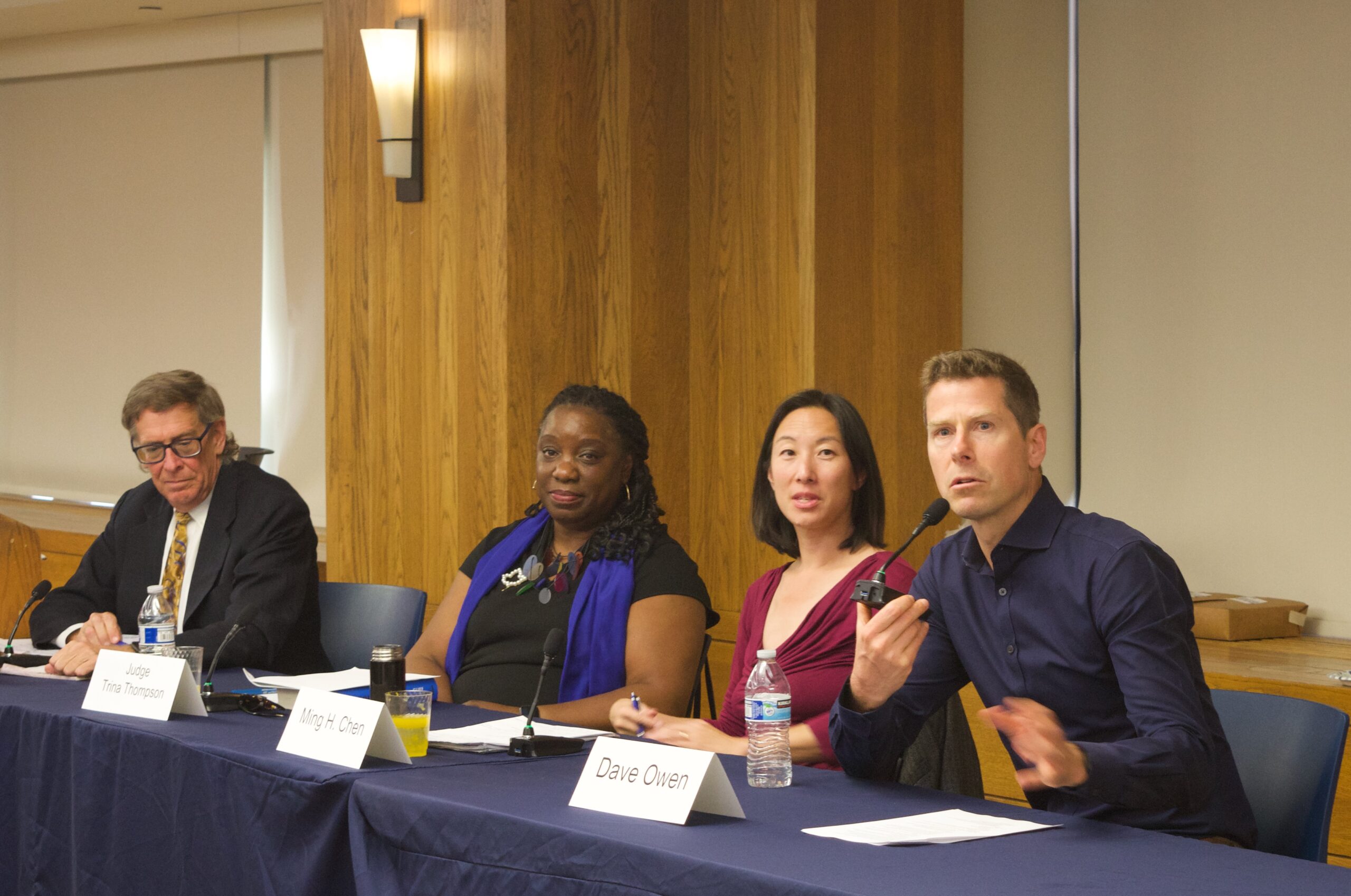
Professor Rory Little moderated a panel with U.S. District Judge Trina Thompson, Professor Ming Hsu Chen, and Associate Dean of Research Dave Owen (left to right).
Affirmative action in college admissions, the First Amendment freedom to discriminate against LGBTQ+ customers, and the regulatory power of federal agencies were just a few topics tackled by a panel at UC Law SF looking at recently decided and pending U.S. Supreme Court cases.
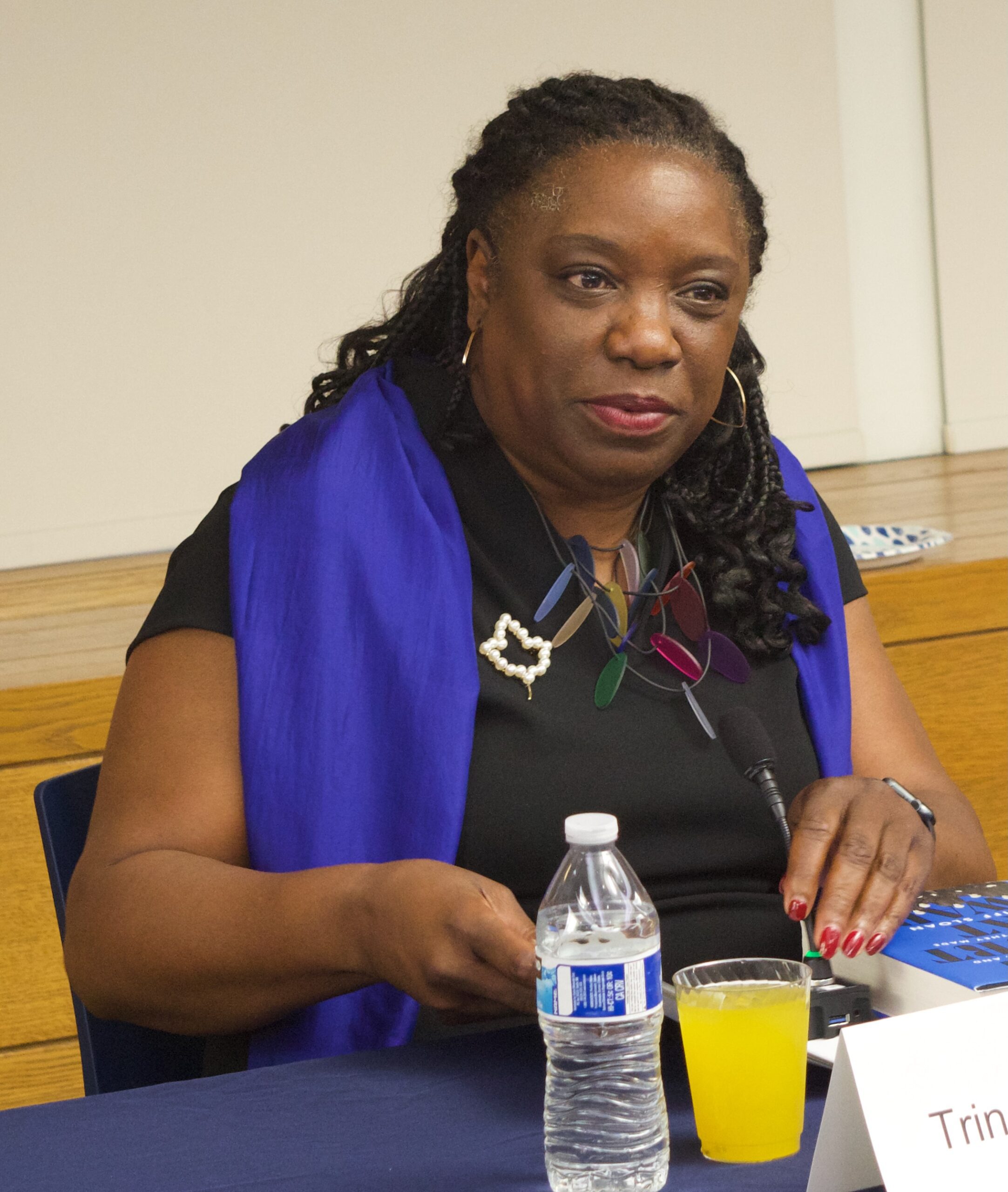
U.S. District Judge Trina Thompson urged law students to pay close attention to the Supreme Court’s majority and dissenting opinions.
U.S. District Judge Trina Thompson of the Northern District of California joined a panel of three esteemed law professors in October for UC Law SF’s Annual U.S. Supreme Court Review and Preview.
“Does the Supreme Court matter,” Thompson said, responding to a question posed by panel organizer and moderator Professor Rory Little. “Absolutely. They are the binding authority that guides the court in its decisions, whether we agree or disagree.”
One of the court’s most headline-grabbing opinions this year was Students for Fair Admissions v. Harvard, which overturned decades of court precedent on the use of affirmative action policies in college admissions.
Professor Ming Hsu Chen, who directs the Center for Race, Immigration, Citizenship, and Equality (RICE), said the majority primarily concluded that pursuing student diversity was no longer a “compelling government interest” and that admissions policies which consider race as one of many factors violate the Constitution’s equal protection clause. However, the court indicated it would still be permissible for an applicant to describe how race shaped their character, for example, in a personal essay.
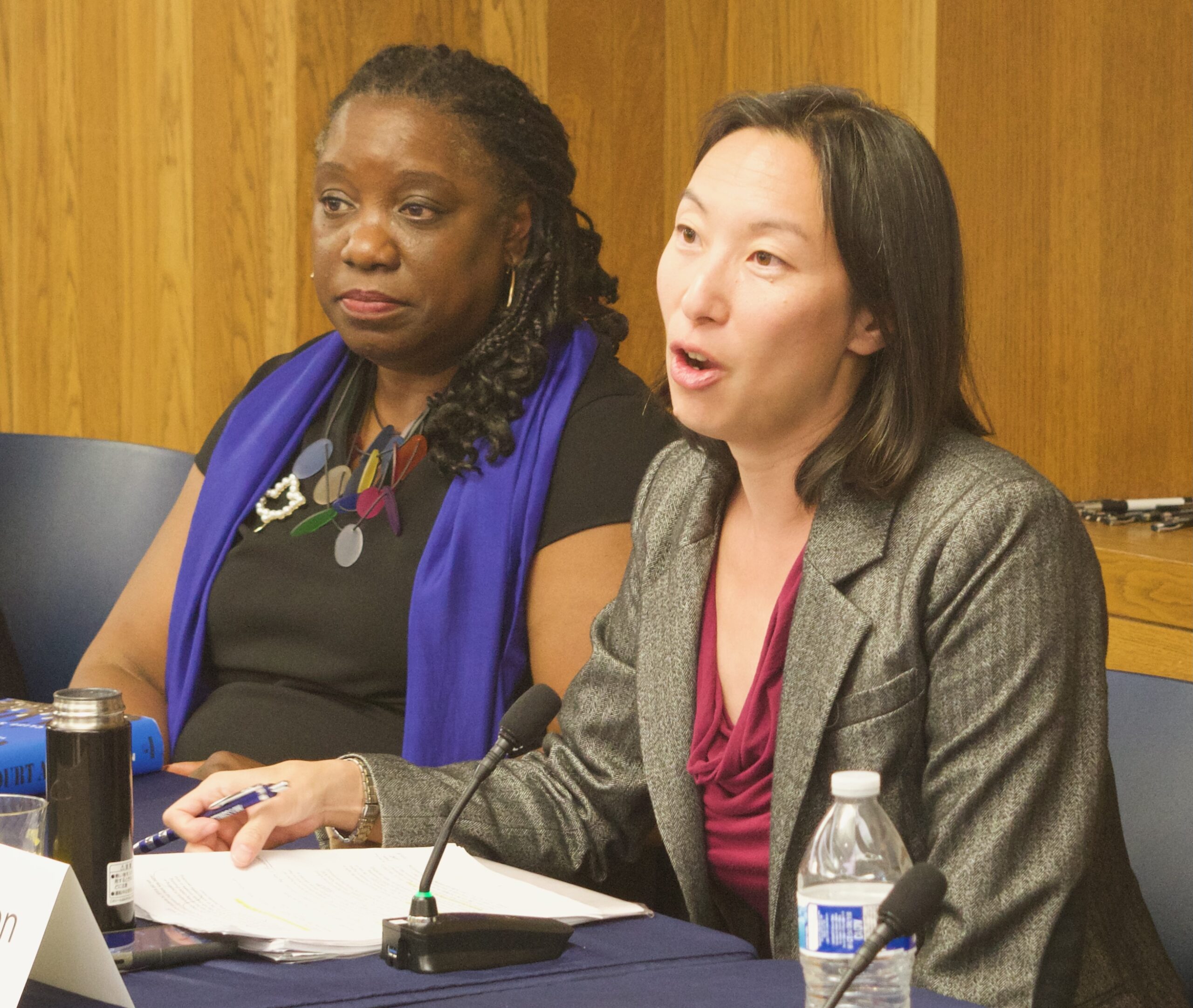
Professor Ming Hsu Chen spoke about recent high-profile cases involving affirmative action and LGBTQ+ discrimination.
Chen also discussed the recent 303 Creative LLC v. Elenis decision, which ruled that Colorado could not enforce its anti-discrimination law against a website designer who refuses to create wedding websites for same-sex couples. The court found the law likely violates her First Amendment speech rights.
“What we’re seeing is the court is really grappling with what the line is going to be between the freedom to discriminate and the freedom to be free from discrimination, and I think you’re seeing that line shifting away from members of protected classes,” Chen said.
Associate Dean of Research Dave Owen, an environmental law expert, tackled two cases with major implications for the power of administrative agencies. He first spoke about the May 2023 decision in Sackett v. Environmental Protection Agency, which severely limited the scope of the Clean Water Act by redefining what “waters of the United States” means.
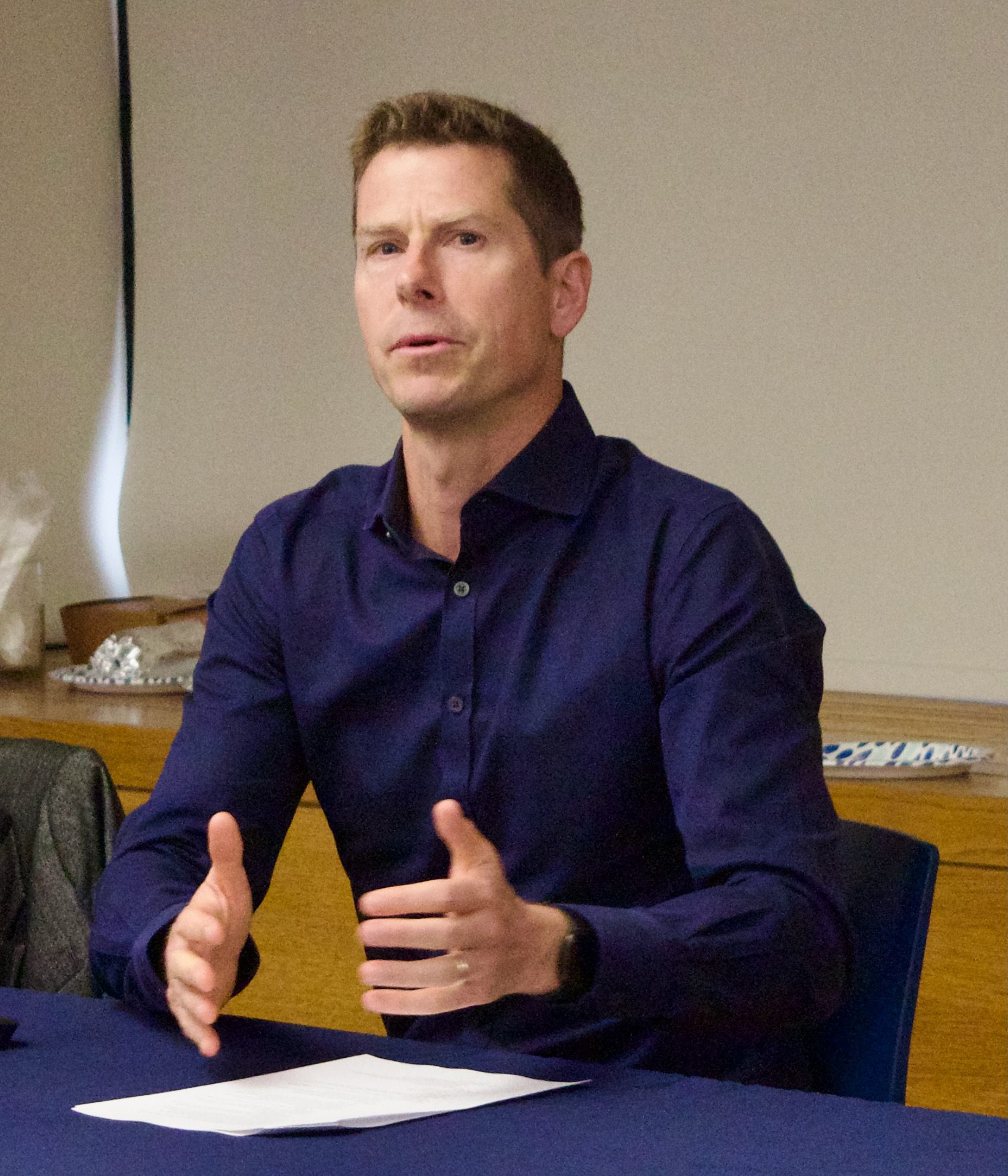
Associate Dean of Research Dave Owen analyzed recent and pending Supreme Court cases that challenge the regulatory power of federal agencies.
“This is the biggest rollback in the history of U.S. federal environmental law,” Owen said, adding it will also limit other environmental laws triggered by Clean Water Act permit requirements.
Additionally, Owen spoke about the pending case Loper Bright Enterprises v. Raimondo, which could overturn a nearly 40-year-old doctrine, known as Chevron deference, that gives federal agencies the power to interpret ambiguous language in federal laws – so long as the interpretations are reasonable.
Turning to gun rights, Little discussed a pending case addressing whether federal law can ban people subject to domestic violence restraining orders from possessing firearms. He explained that the case, United States v. Rahimi, exposes problems with a prior decision that permits gun restrictions only if a tradition of such regulation is rooted in U.S. history.
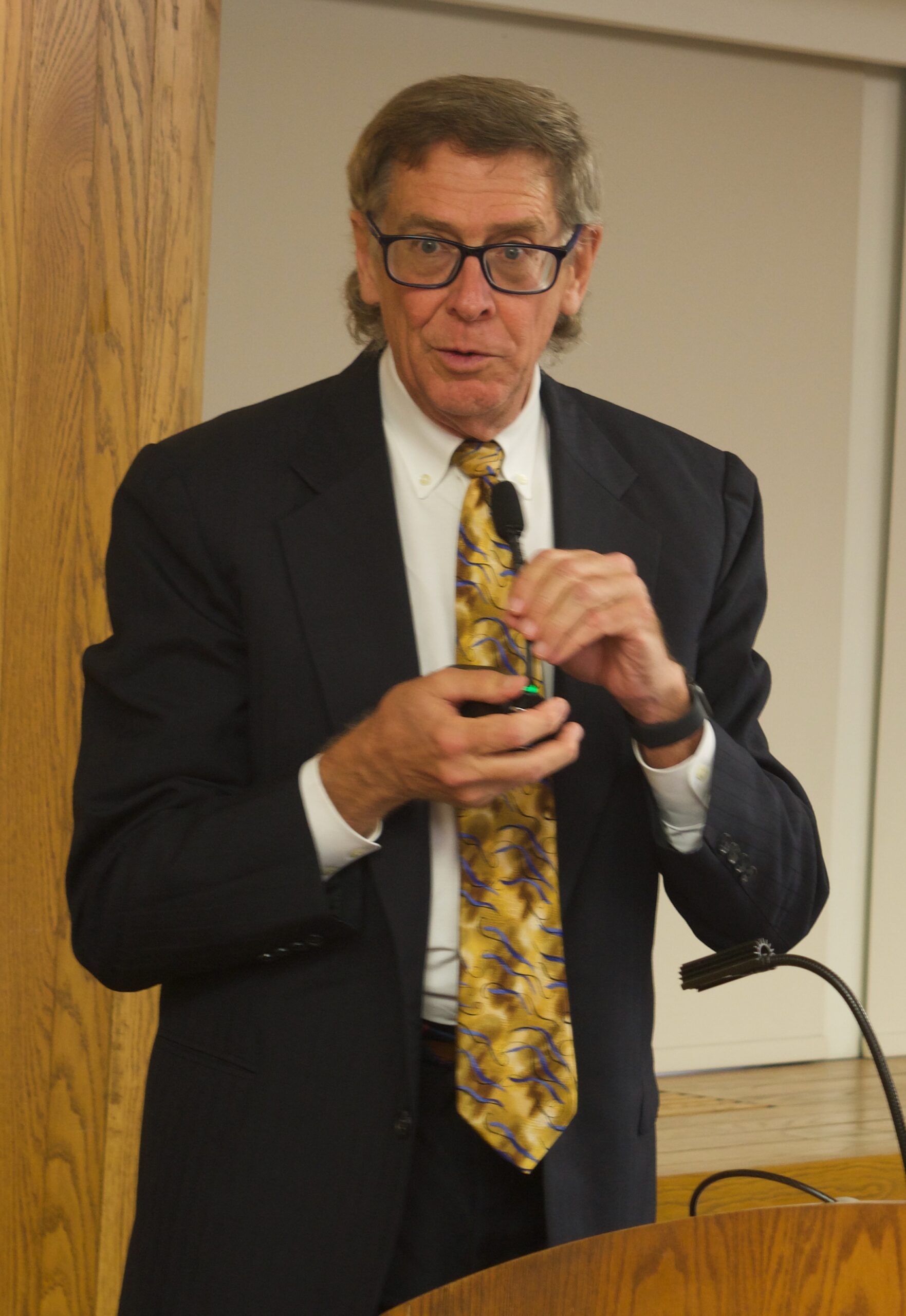
Professor Rory Little spoke about a pending case that pits gun rights against a law that protects individuals from threats of domestic violence.
“There’s no analog to the domestic violence restraining orders in 1790,” Little said. “Why is there no historical analog? Well, women had no rights. Women couldn’t vote or own property. Women were often the object of violence from their domestic partners, and this was viewed as socially appropriate at the time.”
Moving to other criminal matters, Thompson spoke about the June 2023 decision in Samia v. United States, which concluded that an alleged confession by a non-testifying codefendant can be used as evidence at trial under certain conditions. However, Thompson noted, even with a redacted name and limiting jury instruction, it is foreseeable that jurors could figure out who the unnamed person is, and the defendant would have no opportunity to challenge the accusation by cross-examination at trial.
“This case is going to present some real challenges for trial departments to do a fair assessment of what does and does not come in,” Thompson said.
In general, Thompson urged law students to “follow the breadcrumbs” in the Supreme Court’s majority and dissenting opinions to find areas where the facts in their cases can be distinguished. She said it’s also important to help judges understand the full context and implications of the cases before them.
“I need to make this decision, and I need this information so I can make an informed decision and one that has balance and longevity in terms of its import and its application,” Thompson said.